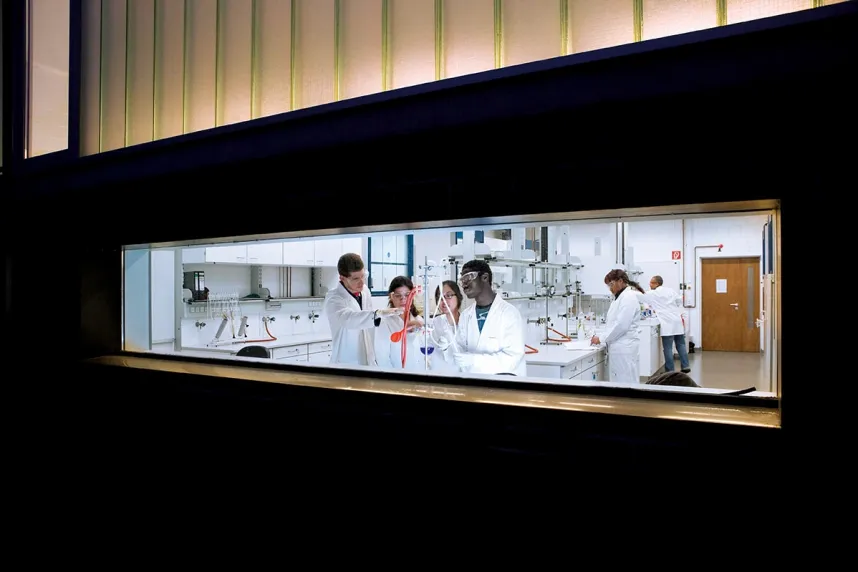56,250 hours in service of the local Bremen community
While the method is widespread stateside, Constructor University is pioneering the concept in Germany. In “service learning,” students are required to work with regional partner organizations to implement practical projects that serve the common good. “Community Impact Projects” (CIP) is the name of the corresponding program at Constructor University. In this academic year alone, around 450 students will log over 56,000 hours of voluntary work in some 20 projects.
Dr. Jakob Fruchtmann just returned to Europe after attending a conference in North America, where he was one of more than 200 scientists from around the world meeting to discuss the tenets of service learning--a concept considered to be one of the most innovative teaching methods. “It's a core component at all renowned universities in the USA, and recently we've seen it begin to catch on globally, as well,” says Fruchtmann.
Dr. Fruchtmann, an instructor of sociology, is one of the initiators and academic director of the CIP format, which was introduced at Constructor University in 2020. “The students use what they have learned to solve concrete problems on site. This benefits their personal, academic and professional development--and the surrounding area, too,” says Fruchtmann, describing the concept. Every student in their 5th semester is required to take part in one of the seminars. Calculated as 125 hours, this amounts to exactly 56,250 hours for 450 students.
The CIPs are not anything close to plug-and-play universal solutions. Students from all over Europe, Asia, Africa, Latin America and North America attend Constructor University, where English is the lingua franca. Developing a feel for local needs and finding a regional partner is therefore one of the first tasks. “The teams have to demonstrate a need for their ideas that is defined by a regional partner,” says Fruchtmann, describing the process. The lecturers help with “matchmaking” and protect tips. In the meantime, external organizations are getting wise to the format and proactively approaching the university with both a problem in need of solving and a question for the students: “Can you help?” Fruchtmann would love to see this happen even more often.
From measuring air pollution and building a sports park for disadvantaged youths to promoting the use of robots in schools and monitoring cognitive performance in professional mixed martial arts fighters, the topics are as diverse as the courses on offer at Constructor University. “Climate and the environment play an important role, as do feminism and enthusiasm for technical issues,” reports Fruchtmann.
An important learning objective of the CIP is the ability to promote a change of perspective. “Students should ask themselves how can their qualifications and skills benefits others, project partners, future employers or potential customers,” explains Fruchtmann. They should learn to put themselves in other people's shoes--a key qualification for the job market, he says.
The CIP is not about charity, but about exchange, taking on social responsibility, gaining practical experience and working in interdisciplinary teams with regional initiatives, organizations or companies. “Many students are passionate about it. They want to be part of their social environment and contribute to improving it,” says Fruchtmann. By overcoming linguistic and cultural differences, they also serve as bridge builders for the university as a whole, which, with its campus on a former barracks site several miles away from the Bremen city center, is often described as its own bubble.
Under the motto “Constructive for Bremen,” CIPs are about giving back. At the end of the seminar, each participant is tasked to write a project report in which they reflect on the value of what they've learned. Fruchtmann would like to be able to expand individual projects and make them scalable in the future. He would also like to increase international exchange, so that “what we do here in Bremen is viewed with respect everywhere.”
Questions answered by:
Dr. Jakob Fruchtmann | Professor of Sociology
jfruchtmann@constructor.university | Tel.: +49 421 200-3035
